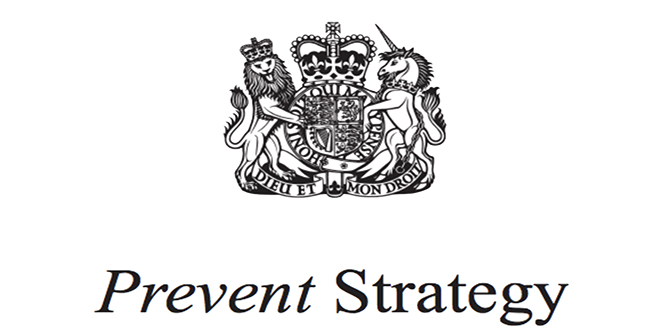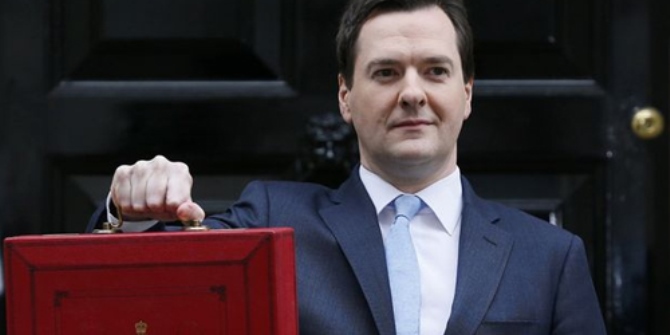 When discussing the EU referendum it’s become fashionable to criticise David Cameron for taking a dangerous gamble with the UK’s prosperity for narrow political advantage. The argument runs that the decision on whether to stay in or exit the EU is so complex that it should be left to political elites. Here, Rikki Dean argues that this is old-fashioned thinking. The referendum is not the problem – the campaigns are.
When discussing the EU referendum it’s become fashionable to criticise David Cameron for taking a dangerous gamble with the UK’s prosperity for narrow political advantage. The argument runs that the decision on whether to stay in or exit the EU is so complex that it should be left to political elites. Here, Rikki Dean argues that this is old-fashioned thinking. The referendum is not the problem – the campaigns are.
When it comes to tomorrow’s referendum, we should not bother the tiny minds of a public ill-equipped to make this decision. This argument has been prominently made by the likes of David Mitchell and Richard Dawkins, apparently without appreciating the irony of someone with little expertise on how referenda function pronouncing just when and where the public have the expertise to be involved in one. Their logic is exactly the type of patrician argument previously made by aristocrats in order to deny the vote to people without property and women.
The first sign that a critic has not thought very deeply about what it means to vote in a referendum is when they bemoan the frightening complexity of the decision. Voting in a general election presents much greater information costs to a voter than voting in a referendum. When I go to the polling station in a general election I have an array of candidates to choose from. These candidates’ parties each has a complex manifesto for government that spans multiple issues. This is before we introduce the complexity of whether to cast a vote for the individual MP, the political party, or the party leader, and whether each of these is competent and trustworthy enough to realise their agenda.
(Image: Marian CC BY-NC-SA 2.0)
The EU referendum is one issue, with two choices. If we don’t trust the public to parse two choices, one of which is essentially, ‘do you want things to stay as they are?’, then we really have to reconsider our commitment to representative democracy too. The idea that the public is not competent to make political decisions is based on two fallacies, which were wrong in the Nineteenth Century and are still wrong today.
Fallacy #1: Elites are better informed than us
The first fallacy is that political elites always have much better information and judgement than the public. Our political elites are the people leading the Brexit and Remain campaigns. On one side we have a team whose tenuous relationship to the truth has become so apparent that it has begun to alienate their own supporters: former Brexiteer Sarah Wollaston recently criticised the campaign for engaging in post-truth politics.
On the other side are a Prime Minister and Chancellor who have been in government for six years and yet it is difficult to think of a single social policy success that they have instituted. When historians come to assess the legacy of the Cameron-era, they could likely sum it up in one sentence: he presided over two governments that increasingly invented (and often quickly abandoned) poorly conceived solutions to problems that never existed. Our political elites are not omniscient, infallible, demi-gods; they are David Cameron, Boris Johnson and Nigel Farage. When we remember this, the thought of a referendum does not seem such a frightening prospect.
Fallacy #2: We need perfect information to make the right choice
The second fallacy is that individuals need close to perfect information in order for a collective public to make a good decision. This is simply incorrect. There are only two options in the referendum so there is a 50-50 probability of getting the ‘right’ outcome solely by chance. In such situations Condorcet’s jury theorem tells us that, so long as each individual has slightly higher than a 50-50 probability of making the right decision, then the probability of a majority making the correct decision moves towards certainty as the number of voters increases. All that individual voters have to do is perform very slightly better than chance. If you are reasonably sure how to vote, but worried you couldn’t possibly be certain that you’ve made the right decision, stop worrying, get out and vote, and let the maths work its magic.
This fallacy also fails to take account of the way that people actually make decisions. We do not amass all possible information and make a rational calculus of how to act. This would be close to impossible on a decision like the EU referendum since the costs and benefits are far from certain. Elites and citizens alike make their decisions by taking short-cuts and based on emotional logic as well as rational logic – or pathos as well as logos. Research has also shown that even relatively uninformed voters can vote as model citizens would simply by taking their cues from who supports and who is against the proposals on a ballot (see for instance Lupia and Matsusaka, 2004, who give a nice overview of empirical research on referenda).
The problem with the campaigns
One difficulty for voters in this referendum is that none of the main protagonists are trusted by the public. Before the debate between David Cameron and Nigel Farage there was a poll indicating only a quarter of people trusted them to tell the truth about the issue (22% for Cameron, 26% for Farage). This is worrying for the health of our political system, but actually demonstrates the public’s grasp of the political reality. It is difficult to trust people who repeatedly mislead.
There is little evidence from experiences elsewhere that referenda are an inherently dangerous instrument that must result in the kind of demagoguery that has characterised this one. They are not always a sensible idea, but it is not unusual to use them for quite complex constitutional issues. The dispiriting thing about this referendum has not been the interest and capability of citizens but that it has illustrated how unprepared this country is for doing participatory politics.
The issue has captured the public imagination – even the usually apolitical people I know want to talk about it and some have said they will vote for the first time in their lives. The referendum has given them a reason to pay attention to politics and learn more about the issue. But they have been met with campaigns that are uninterested in making sensible arguments and a media that is more interested in the implications for party politics than the substantive issues at stake. David Mitchell and Richard Dawkins are right that this referendum is characterised by a lack of leadership, they just demand the wrong type of leadership. Leaders do not have to make decisions for us, but they should lead through their participation in public debate. And they could begin by refraining from misinforming us.
About the Author
 Rikki Dean is a Researcher and PhD Candidate in Social Policy, at the Centre for Analysis of Social Exclusion (CASE), LSE. He tweets at @Rikki_Dean.
Rikki Dean is a Researcher and PhD Candidate in Social Policy, at the Centre for Analysis of Social Exclusion (CASE), LSE. He tweets at @Rikki_Dean.









It’s not so much the complexity or the information that are problematic but ignoring the deeply ingrained aggressive ignorance that so many of us take pride in. Cable Street was one small event in a long history of forelock tugging deference fascism that runs through our history. We take that animal off the leash at our peril.
Clare Slaney,
Your contribution struck a cord for me, particularly with regards to Cable St.
My Grandfather was a Police Sergeant in the Tower Bridge district leading up to WW2.
My Grandmother was Jewish, her parents having escaped European anti Semitism in the early 20th century.
My grandfather went on to fight in the war & upon his return, was able to instil in my father & I, a deep sense of what being British is about.
Tolerance & manners, a desire to make the world a better place, for all, through hard work & ingenuity.
However, my Grandparents saw & experienced, how soon rhetoric & “political bullying” can soon turn to passive and then active, violent aggression.
People have been coming to Britain for centuries, to find work, ply their trade and frequently, to avoid persecution.
The EU referendum debate & discourse has unleashed hell, through it’s anti immigration rhetoric & “dog whistling”. In physical communities as well as virtual ones on line.
The two arguments being that we are “full” and that British culture is being “eroded”.
Austerity and the complexities of housing provision and public services, are dragging us back to the hatred & divisions of the 1930’s.
The mainstream press & media, only too pleased to provide a platform for those whose thinly veiled xenophobia & fascism, are eager to gain support for their fear derived discourse, in the pursuit of political power.
Propaganda enabled the nazis & fascists to gain power, backed up with violence, threatened, or implied, lead to the very real violence against Jo Cox & her family.
The media empires have the power to create the news, not merely report it.
We are seeing this very same scenario reaching it’s zenith in Britain & across europe.
Free speech is not acceptable, when it cheapens our lives or incites violence or criminal behaviour.
As Nigel Farage was described thus, “a pound land Enoch Powell”.
I can only hope our collective conscience votes to stay in the EU,
If only to work together against hate & ignorance, and take the impetus away from right wing political parties.
Ukip supporters won’t be happy if we vote to remain, but their single issue politics will cease to be relevant.
As happened with the London Mayoral campaign, hope can & should win through.
However nervously it makes”centrists” feel.